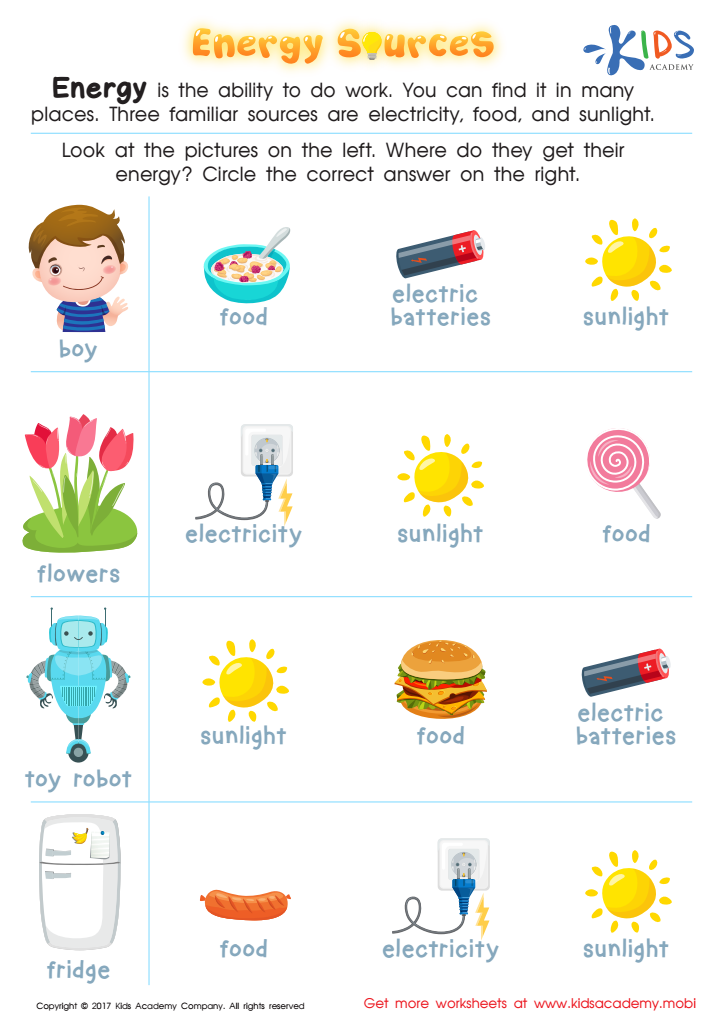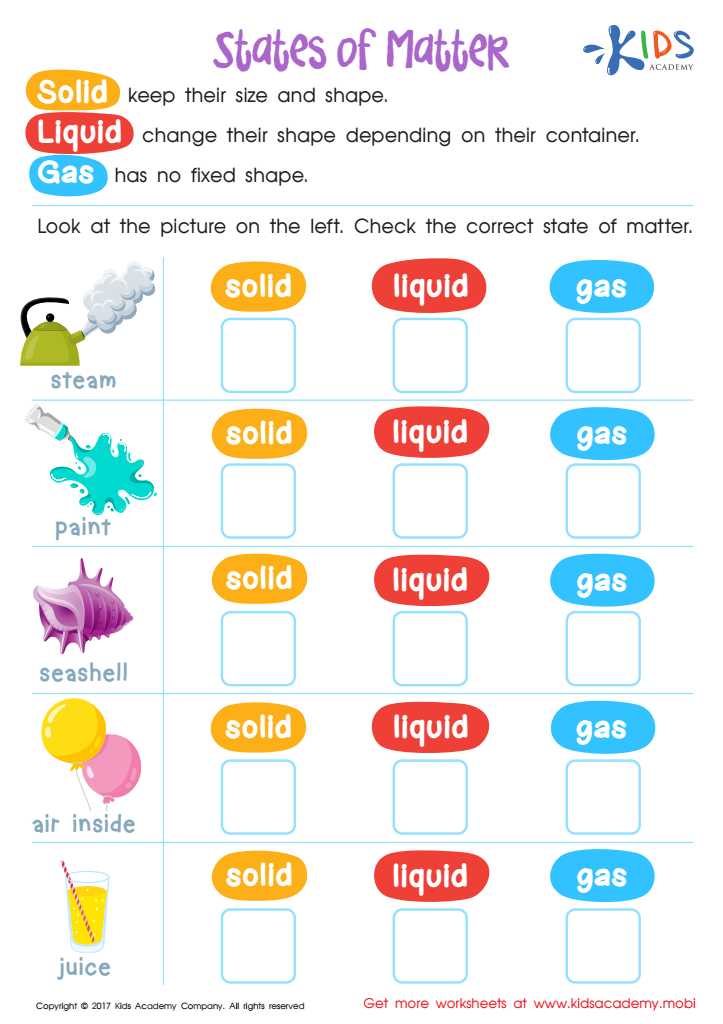Normal Physical Science Worksheets for Ages 7-8
3 filtered results
-
From - To
Explore our engaging Normal Physical Science Worksheets designed for ages 7-8! Our collection offers interactive and educational activities that spark curiosity and promote understanding of fundamental physical science concepts. Each worksheet provides hands-on exercises covering topics like motion, forces, energy, and simple machines, allowing young learners to experiment and discover the wonders of science. With vibrant illustrations and easy-to-follow instructions, our worksheets make learning science enjoyable and accessible. Foster a love for science in your child and help them build a strong foundation for future STEM learning. Enhance their educational journey with our creative and expertly crafted resources.


Energy Sources Printable


Physical Science: States of Matter Worksheet


Sink or Float Printable
Understanding physical science at an early age benefits children in numerous ways, making it essential for parents and teachers to value its inclusion in the curriculum for ages 7-8. At this age, children's minds are incredibly agile, curious, and capable of absorbing fundamental concepts that can set the stage for lifelong learning. Engaging with physical science helps develop critical thinking and problem-solving skills as children learn to inquire about how the world around them works. They start posing questions, observing their environment closely, conducting simple experiments, and drawing conclusions from their observations.
Furthermore, exposing children to physical science nurtures their natural curiosity, fostering a sense of wonder and discovery that can transform ordinary experiences into learning opportunities. It also builds foundational knowledge for future STEM (Science, Technology, Engineering, and Mathematics) education, which is increasingly critical in our technologically advancing society. Early familiarity with core scientific concepts can ignite a lasting interest in these fields.
Lastly, integrating physical science into early education supports various aspects of child development, including language skills, mathematical understanding, and even social skills, as they often work in groups and learn to communicate their ideas effectively. Therefore, parents and teachers should prioritize normal physical science education to provide a well-rounded, enriching early learning experience.

 Assign to My Students
Assign to My Students




















